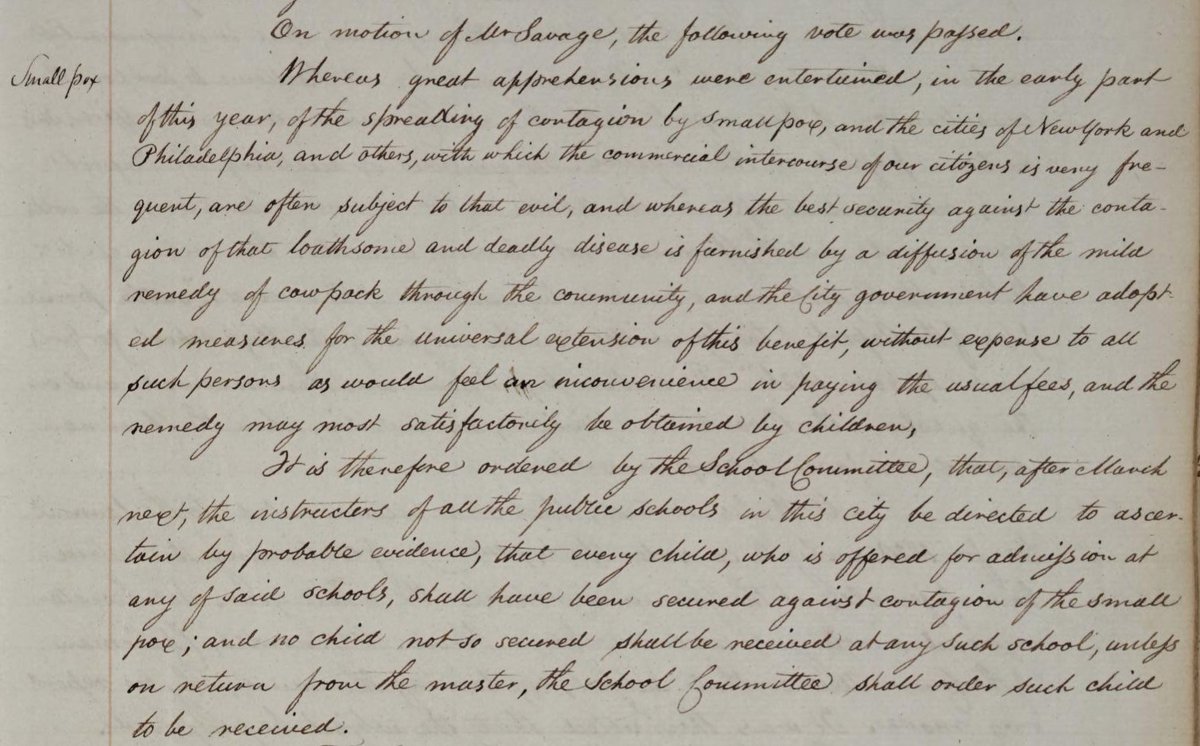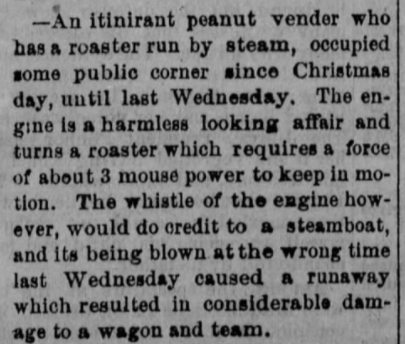1. I'd like to add my thoughts to the conversation about David McCullough's problematic new book "The Pioneers." McCullough's book is centered on the town of Marietta, OH, and for 4 years I lived and worked in Marietta as a professor of early American history at Marietta College. 
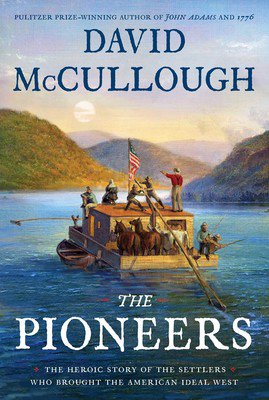
2. Marietta was and remains a great place to teach and learn history. It was the first capital of the Northwest Territory. Marietta College’s Library has an amazing collection of 18th Century documents that McCullough used to write his history.
3. Living and working in Marietta reminded me of my favorite episode of the Simpsons: “Lisa the Iconoclast.” In the episode Lisa, in the course of researching the town founder Jebediah Springfield, discovers a well-kept secret.
4. Lisa found a document hidden inside a fife in the Springfield Historical Society belonging to Jebediah Springfield, the town’s heroic namesake, that reveals he was a fraud. He was a murderous pirate named Hans Sprungfeld and none of the legends about him or the town were true! 
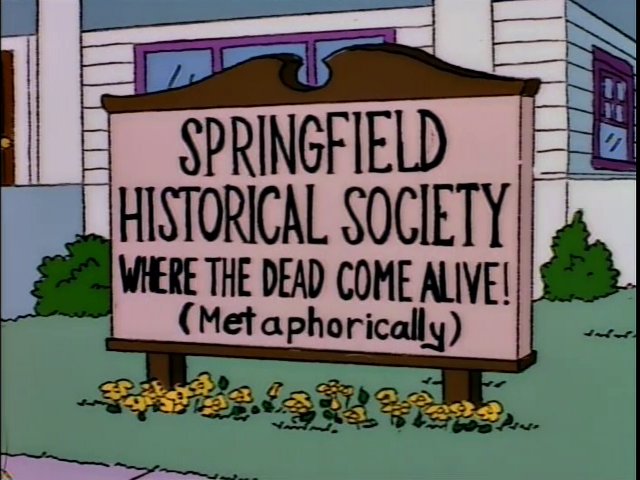
5. Lisa proudly submits her essay entitled “Jebediah Springfield: Super-Fraud” to her teacher, and she receives a failing grade. Eventually the entire town turns against her, refusing to believe anything bad about their town’s founding father. 

6. She eventually convinces the town’s antiquarian Hollis Hurlbut (voiced by Donald Sutherland) that they need to expose the town to the truth. Lisa halts the parade and is ready to address the town. (Seriously it's great. You should watch it.) 

7. But after looking at all those American flags, veterans, and smiling faces, she can’t bring herself to do it. This moment breaks my heart a little every time. I like to show it to my students to get their thoughts. tv.avclub.com/video/3452811?…
8. Marietta, like Springfield, is a troubled little town that celebrates a mythical version of its founding as its brightest moment. mariettaohio.org/about-marietta…
9.When you enter Marietta the historical markers read: “Marietta: the first organized settlement in the Northwest Territory.” Other descriptions refer to it as the “first permanent settlement” in Ohio. Those phrases are repeated all over the town. 

10. I gave lectures showing how nearly every word was wrong. Who’s to say it’s permanent? That’s a bit presumptuous. Were Native Americans disorganized? Did they not have settlements? Did they not desire and expect permanence? What about Detroit or any number of other places?
11. My predecessor as early American historian at Marietta College was Jim O’Donnell, a Duke PhD, who studied Native Americans. He published books on Native Americans in the Southeast, and in 2000 published “Ohio’s First Peoples.” ohioswallow.com/book/Ohio%E2%8…
12. Jim was a beloved professor at Marietta and also my neighbor when I moved to town. He advised me not to get too involved with the local antiquarians and museums that had little interest in real history.
13. He was working on, and as far as I know is still working on a biography of Marietta founder Rufus Putnam that will be better than but definitely over-shadowed by McCullough’s Pioneers. 

14. The pioneer history of Ohio papers over the Native Americans, of course, but it ignores also ignores the Ohio River and the communities across from it. Marietta may have been the first city organized according to the Northwest Ordinance, but 

15. Marietta sat directly across the Ohio river from Williamstown, West Virginia, which was founded the year before in 1787. The Tomlinson Mansion and Henderson Hall, both slave plantations, are easily visible across the river. Many early maps made Virginia vanish. 

16.Marietta was located between the slave markets of Wheeling and Parkersburg, Virginia (now WV). Interactions along and across the river are usually left out of the narrative and out of the local histories and museums (except for later heroic stories of the Underground Railroad)
17. But our history department wanted to forge a better connection with the local museums than it had had in the past. We got some of our students to do internships there. And our students regularly did projects on early Ohio from our Special Collections. library.marietta.edu/spc
18. I was asked to curate an exhibit of 1930s WPA murals depicting the early history of Marietta. Some students and I helped design the exhibit and captioned the murals. They were very much like the murals of Pawnee from Parks and Recreation. 



19. I titled the exhibit “Imagining Marietta,” and it was about how the founders of Marietta imagined themselves and the Native Americans as well as how subsequent generations imagined this place. I leaned many historians including Andrew Cayton. jstor.org/stable/3122554… 
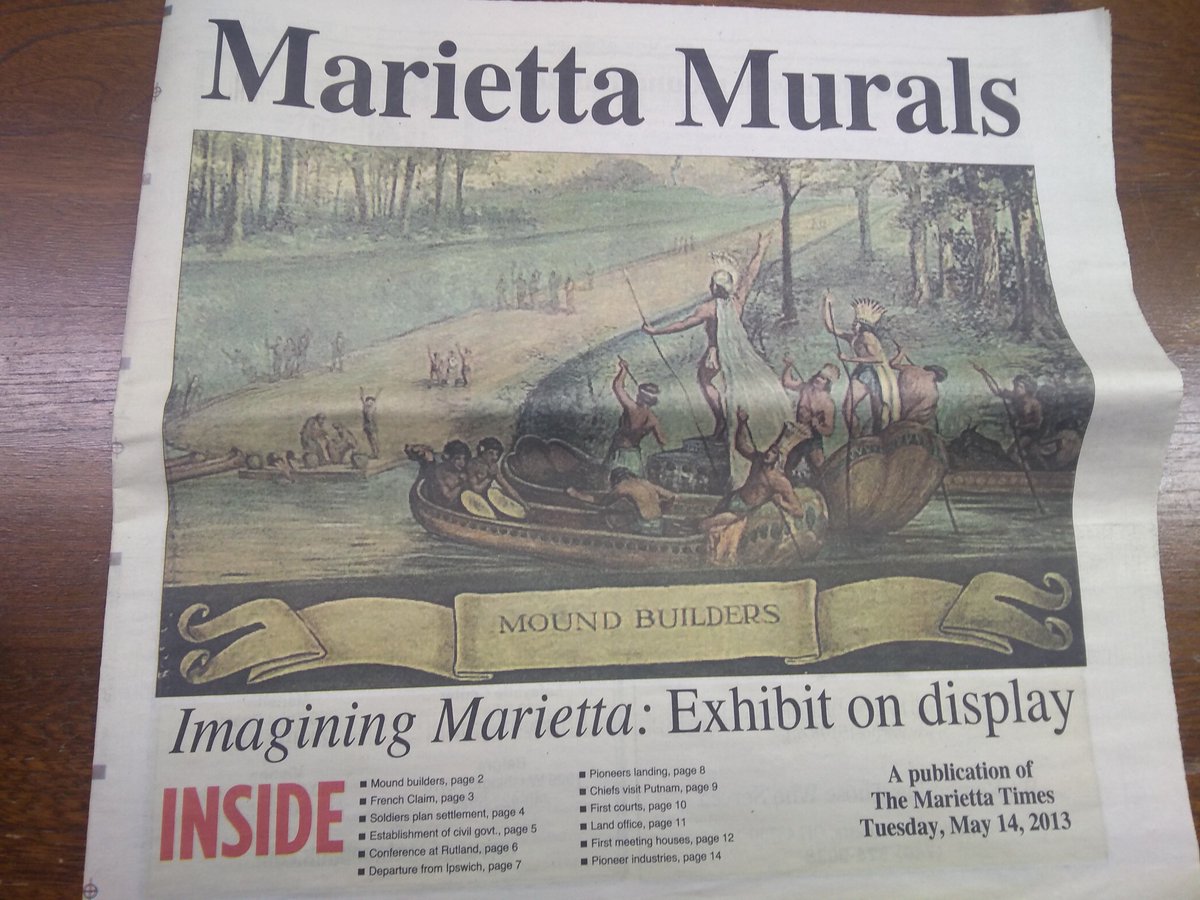
20. It didn’t stick. The lore was too strong. For decades every fourth grade student in Ohio would take a field trip to Marietta to learn about “the pioneers” and founding of the state.
21. They would visit the Campus Martius Museum (still definitely worth a visit if you’re in the area) and learn the heroic history of the palisade fortification built by Rufus Putnam and the Ohio Company of Associates described by McCullough. 

22. Inside the museum you can tour Rufus Putnam’s restored home and the Ohio Company Land Office where, according the museum’s website you can “walk in the steps of hopeful land owners, view the maps and stake your claim in the Northwest Territory.” 



23. McCullough’s book isn’t untold. It’s local antiquarian history. It’s all over town. It’s the stuff “the pioneers” told about themselves and retold to their children. It’s in old Ohio history textbooks.
24. In 1938 before Mt. Rushmore was completed (and five years after David McCullough was born), Gutzon Borglum sculpted the “Start Westward” Memorial honoring the pioneers in Marietta. Franklin Roosevelt spoke at its dedication. 

25. FDR’s Marietta speech sounds much like McCullough. “But the men and women of the Ohio Company who came to Marietta, came rather like the men and women of the Massachusetts Bay Company to Boston, an organized society, unafraid to meet temporary adventure, but serious...
26. In seeking permanent security for men, and women, and children, and homes. Such people may bot be the first to conquer the earth, but they always last possess it.”
27. FDR honored the pioneer spirit of the Northwest Territory and described the Northwest Ordinance as forward-looking governance—the kind of “cooperative self-help” that his New Deal was meant to be. millercenter.org/the-presidency…
28. He compared the problems Americans faced in the 1930s as a “frontier of social problems” similar to the ones the Ohio Company of Associates faced when they founded Marietta in 1788. Good governance overcame the difficulties.
29. To them “Government was an indispensable instrument of their daily lives….They looked on government not as a thing apart—as a power over our people. They regarded it as a power of the people, as a democratic expression of organized self-help like a frontier husking bee.”
30. McCullough seems to be going back to this well again. He’s calling on the nation to imagine itself as the pioneers of Marietta imagined themselves—as orderly planners and men of sober action.
31. It’s not hard to understand why he’s probably doing this. Marietta, very much a part of Appalachia, has long suffered economically. The Marietta-Parkersburg metro has also been rated the least diverse among the 501 metro areas in the United States. mariettatimes.com/news/local-new…
32.When McCullough arrived in 2015, Marietta College was facing serious enrollment problems. They had cut large numbers of faculty and staff. 2 of the 4 historians left in 2015 (*cough*), and the college was planning to cut both positions including the early American history job.
33. We in the history department at MC had been repeatedly making the case about both the importance of history and liberal arts more broadly but also about Marietta’s unique connection to the past and its wonderful Special Collections.
34. McCullough was (and I think is) being viewed as a godsend for the town and the College. With his help, the history department was able to keep its early American history position. And his book promises to bring tourist dollars and perhaps history majors back to Marietta.
35. *Side note, my last semester at MC I taught the annual sophomore history methods course to a class of just 3 students (and one was not a major). What was happening to the history department at MC matches that of many small, tuition-driven colleges and universities.
36. David McCullough is also very opposed to Donald Trump and worried about the spirit of our time. In his last book, a compilation of his speeches titled “The American Spririt: Who We Are and What We Stand For,” illustrates that. time.com/4742943/david-…
37. In an interview with Time Magazine in 2017, McCullough said “We have to remind ourselves of what we believe in, in the way of standard behavior, standard dedication, standard patriotism. And in order to do that, you have to understand history.”
38. “We’ve been raising several generations of young Americans who are, by and large, historically illiterate. And it’s not that they’re not bright…..It’s not their fault. It’s our fault. Almost 80% of colleges and universities no longer require history for graduation.”
39. Marietta is the county seat of Washington County, Ohio, and it went hard for Trump in 2016 69% - 27%. In Wood County, West Virginia, right across the Ohio River, it was 71-24 for Trump.
40. So, I think, and this is very much my opinion, McCullough’s politics mixed with his love of heroic historical tales as he was struck by the direct threat to the study of history happening in the very place where he was researching this heroic history.
41. In his own way, he did bad history to save history. It’s a morality tale for nation that McCullough thinks could use one. Like FDR in 1938, he’s appealing to white voters to trust and demand more of their government.
42. But it’s not just Lisa Simpson who knows the truth anymore. Americans don’t just need to hear hoary echoes of previous imaginations, but also the historical realities of a nation that has always been diverse and complex.
43. None of that excuses the fact that his book leaves out so much that other historians have studied and written about. Reviews by Rebecca Onion and Andrew Isenberg hit on those points. But they miss some of the immediate context that I hope I provided. slate.com/culture/2019/0…
My link to Lisa's speech where she decides not to reveal the truth about Springfield didn't work. This one should. Still heart-breaking for this historian.
• • •
Missing some Tweet in this thread? You can try to
force a refresh







